RECENT TRAINING IN PERSON TAURANGA
The most recent training event I did was in August 2025 for Grief Support in Tauranga Bay of Plenty. The topic was 'Inviting conversations about spirituality in health and social care interactions'. I have a book on this topic coming out soon that myself and my colleague Dominic Chilvers who leads the Social Work training Program at Ara University in Christchurch have just completed. One of the key features is the spiritual river model (c).
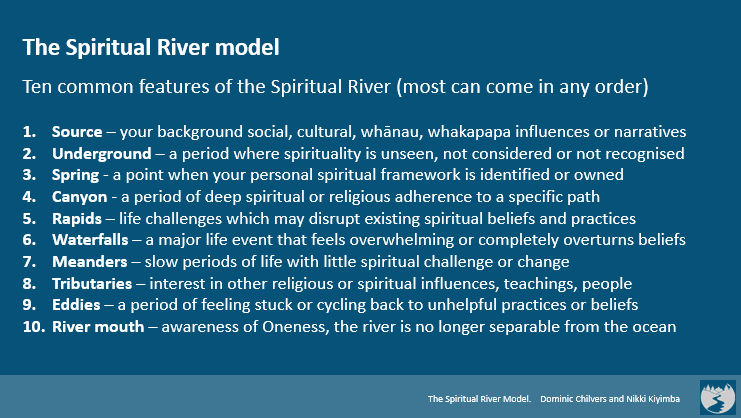
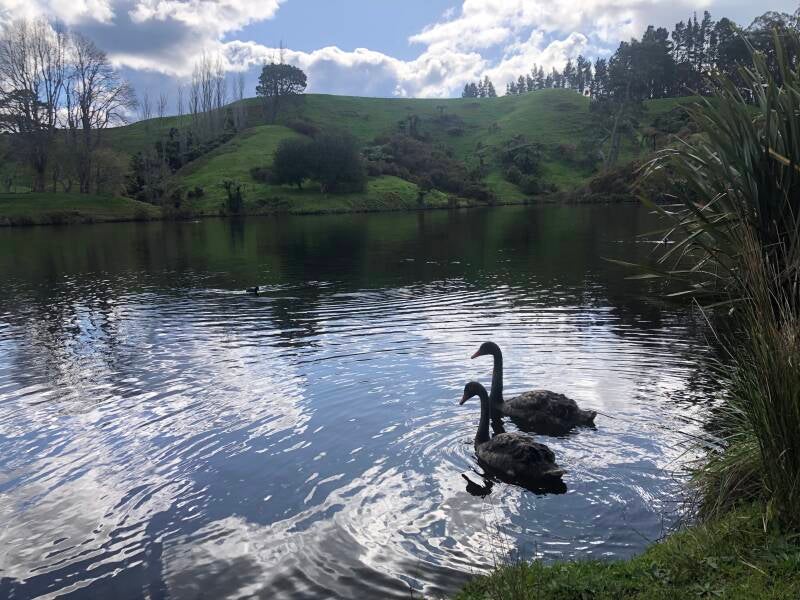
The basis of the way that spirituality is defined in this training is 'relational consciousness' (see my articles in tee research section for more information).
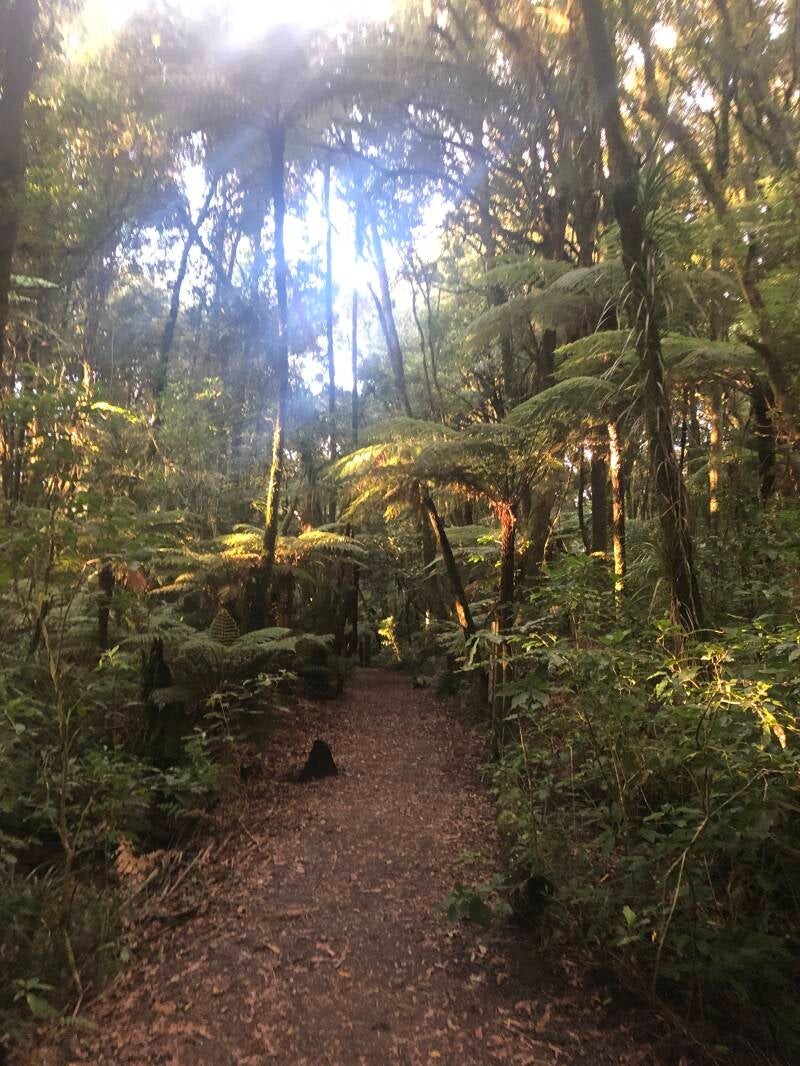
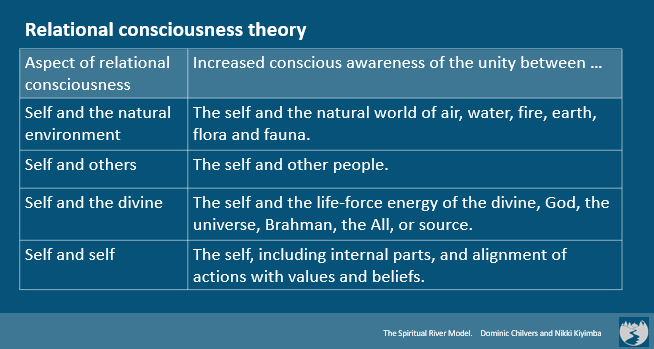
Online Trauma-Informed Mindfulness Training
The free video below is a sample of the videos that are available in the full Practitioner Training Course in Trauma Informed Mindfulness. In addition to step-by-step videos explaining the whole model, there is a companion workbook available as a downloadable pdf. Chapter by chapter the student workbook is available alongside the videos for each lesson, and the Power Point slides that go with each lesson. ONLY $13.99
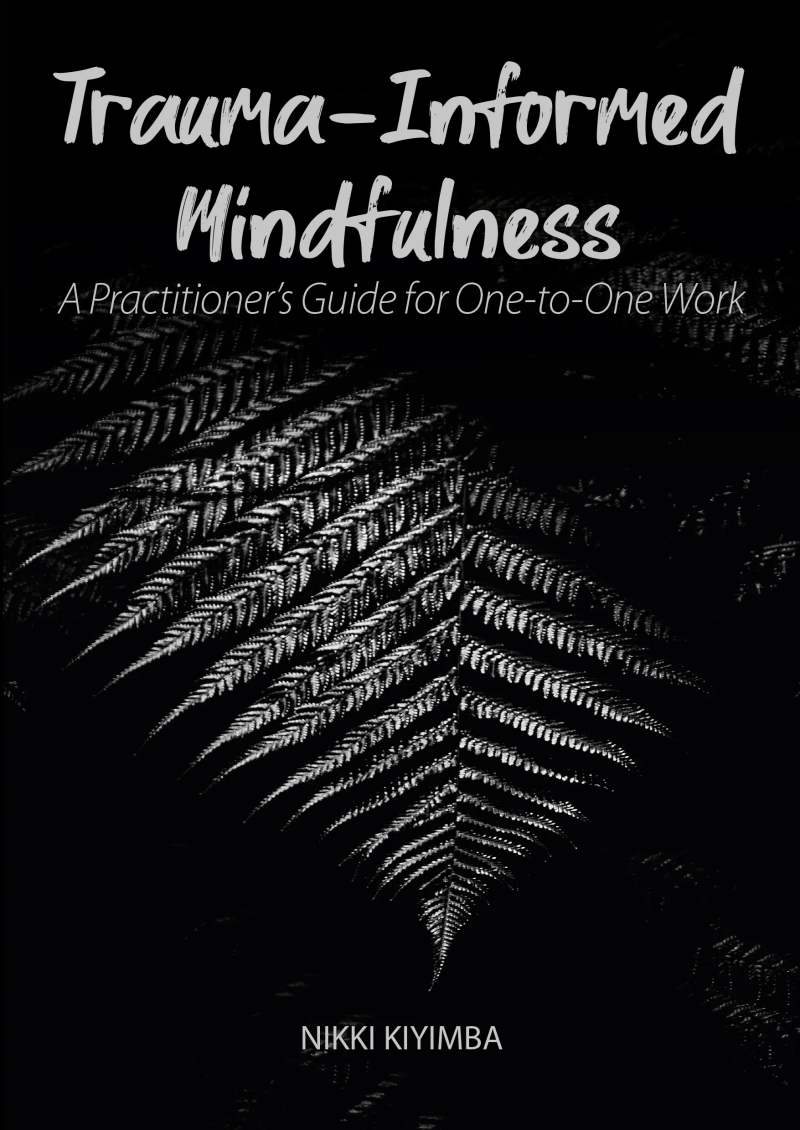
The full TIM Practitioner Training course is currently available through Udemy. Click on the image below to go to the Udemy enrolment page.
I have been teaching and training front line emergency services, health and social care workers, community organisations and university students for many years, and am happy to discuss your training requirements with you. This could be a one-hour professional development presentation or workshop, or a whole day tailored to your organisation's needs. My specialist area is holistic Trauma-responsive care and risk management.
PAST TRAINING
If you are interested in more information about any of these topics and want to book some training for your organisation or discuss your requirements further, please email with a short message.
COURSE 2: Trauma Models
This training was a continuation from course 1 with the aim to advance participants with how to effectively implement trauma models into their practice so they can safely support clients with trauma. The training covered:
- Cognitive Behaviour Therapy (CBT)
CBT comprises a relationship between Thoughts, Emotions, Somatic responses, and Behaviours that occur in response to an activating or triggering event. Delegates learned the difference between prolonged exposure CBT, which involves first person recounting of the trauma event, and using the four components of pure CBT as separate resources to aid emotion regulation, and to challenge avoidance and negative thinking.
- Trauma Tapping Technique (TTT)
Originally devised as a somatic approach to supporting psychological healing of child soldiers in Africa, TTT can be easily adapted for any clinical setting. TTT can be practitioner-led in a one-to-one or group setting and can also be taught to clients as a self-help tool. With a strong evidence base, this approach is simple and effective.
- Dialectic Behaviour Therapy (DBT)
Originally devised to support people with Borderline Personality Disorder, DBT comprises three components: Skills, Risk Diaries, and Behaviour Chain Analysis. Delegates were introduced to the four skill sets, Emotion Regulation, Mindfulness, Distress Tolerance, and Interpersonal Effectiveness. Delegates learned how to develop a risk diary, and how to engage clients in a Behaviour Chain Analysis.
Supporting resources were provided for each model.
Introduction to Dialectical Behaviour Therapy (DBT)
In a series of mini-workshops featuring Dr Nikki Kiyimba, each session focused on a different aspect of Dialectical Behaviour Therapy (DBT), making them ideal for counsellors, social workers, HIP’s and health coaches.
- Session One – Overview of DBT and Behaviour Chain Analysis
- Session Two – Diary keeping homework and overview of DBT skills
- Session Three – DBT skills focus and putting it all together

